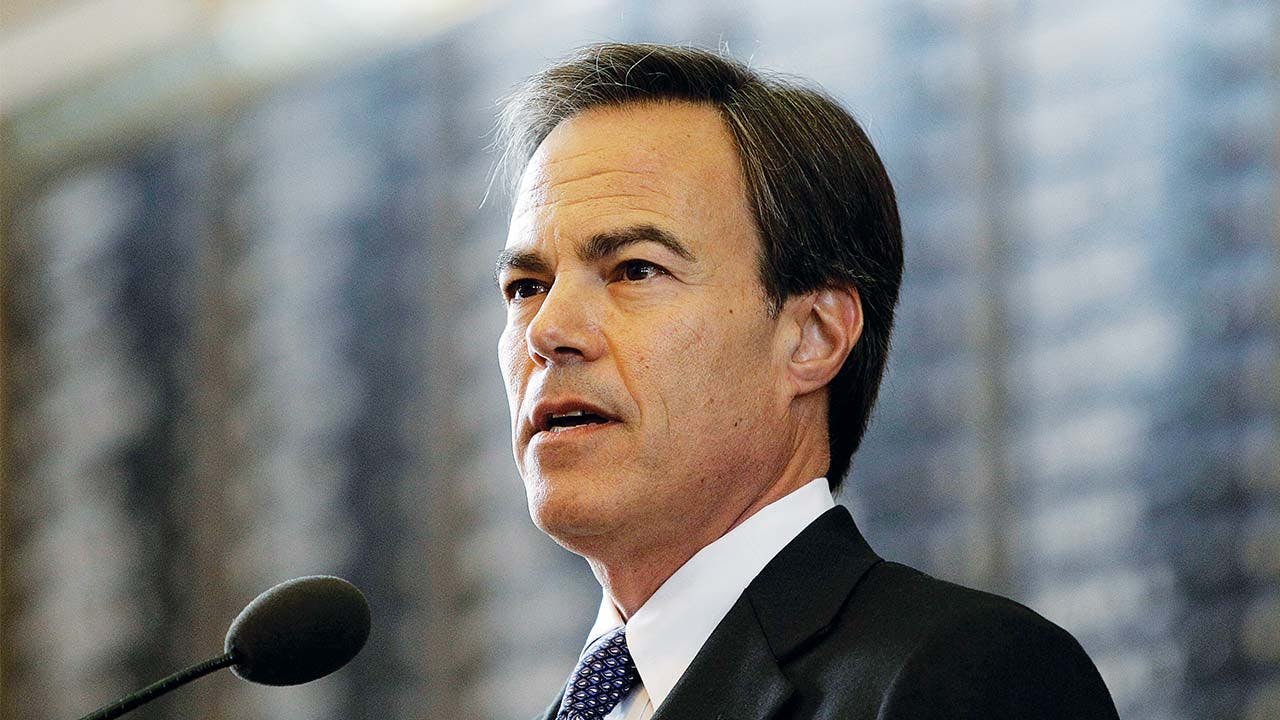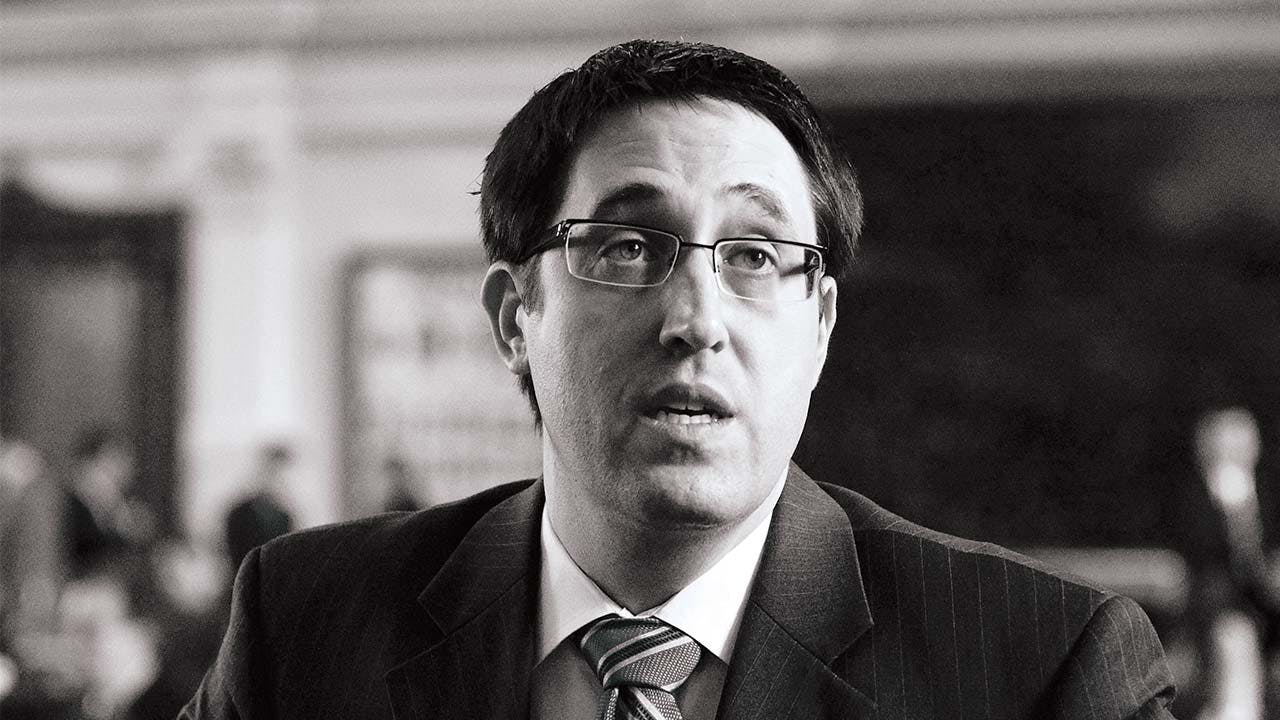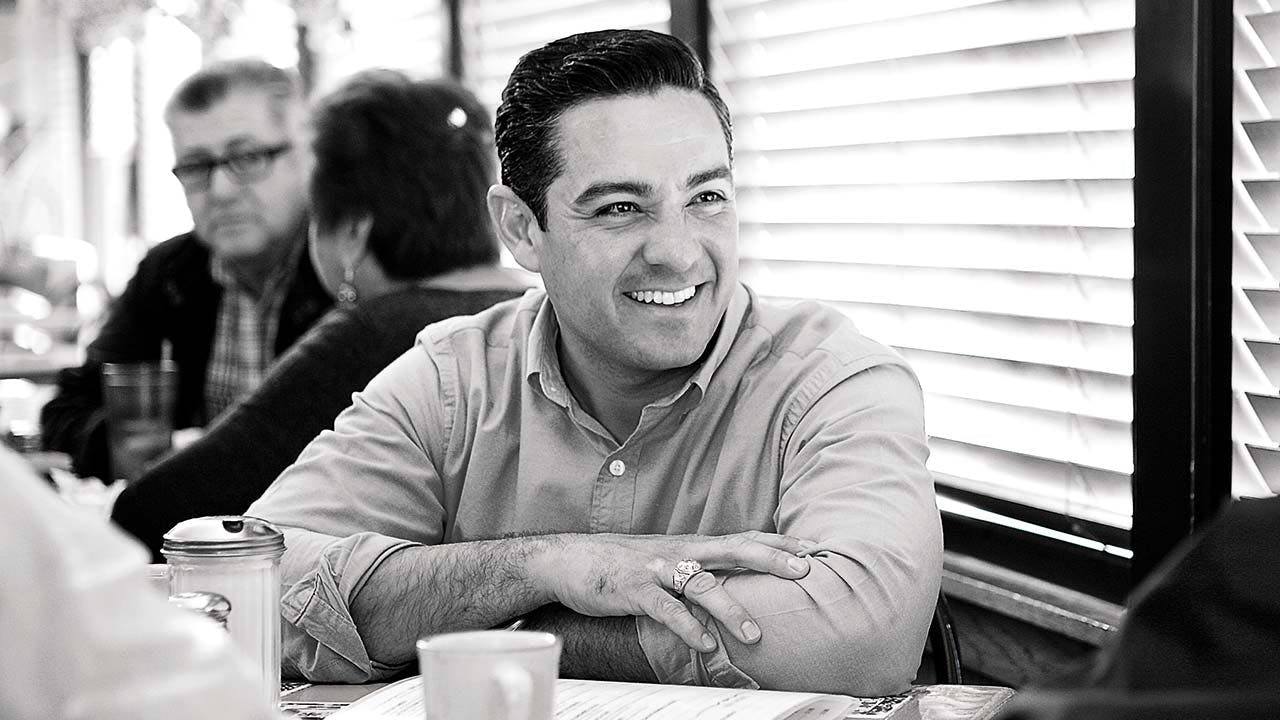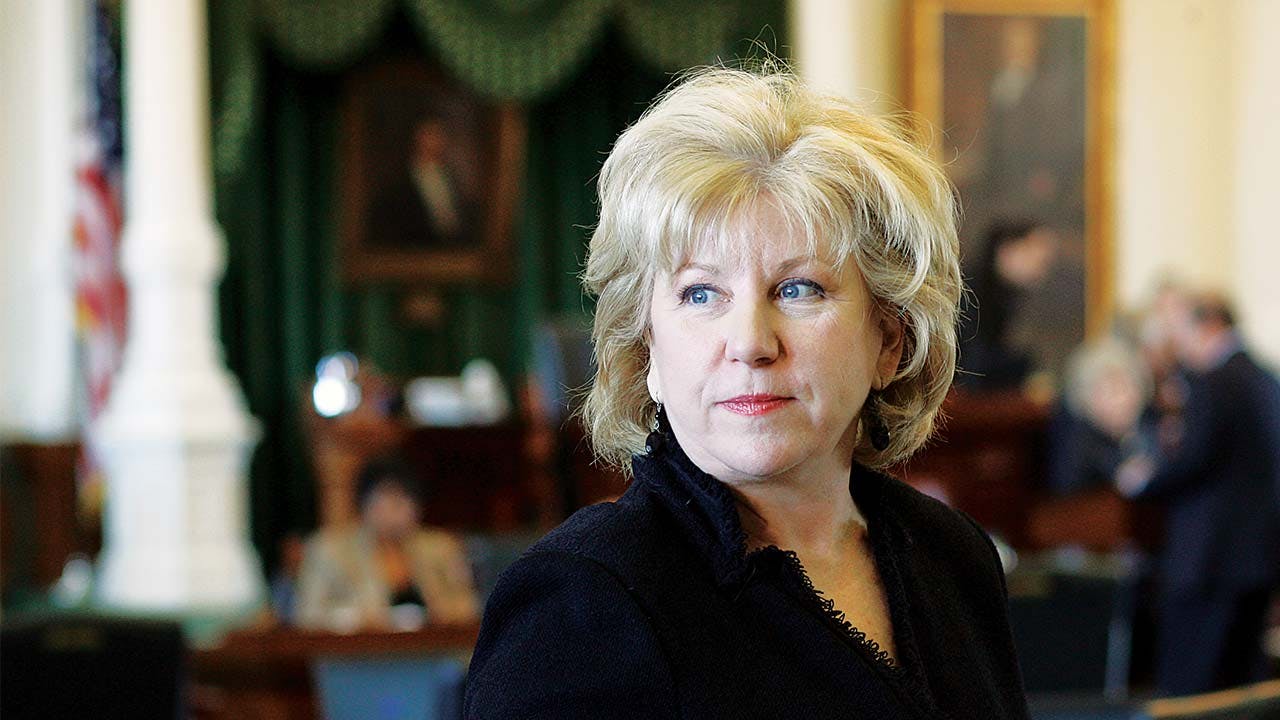Texas politics is defined by one-party rule. Republicans so thoroughly dominate—they have controlled every statewide office and both chambers of the Legislature for fourteen years—that Democrats have almost no influence. So the political battles, the ones that matter, anyway, involve factions within the GOP. These fights have typically pitted the more moderate, business-friendly wing of the party against the more strident grass roots, with Republican primaries often settling them in favor of the latter. In a sense, GOP primary voters have become kingmakers.
The practical result of this trend has been a shift in political power in the state. In years past, influence was exercised through money or friendships or institutional knowledge of how the system functions. Those levers of power still work, though to a lesser degree. But in the past decade, with the rise of Republican ubiquity, we’ve seen the emergence of another way to accrue and deploy power: through the Republican grass roots.
Politicians, activists, and lobbyists who harness the energy of the GOP base have proved remarkably effective at getting what they want. First we saw Rick Perry tap into the rising tea party movement to dispatch the favored Kay Bailey Hutchison in the 2010 governor’s primary and become the state’s most powerful politician. Then it was Ted Cruz, who connected with the party base and became, for a time, the most important person in Texas politics.
Now it’s Dan Patrick’s turn. Entering his second legislative session as lieutenant governor—and having outmaneuvered Cruz by supporting Donald Trump over the summer—Patrick is unquestionably the state’s most influential official. He’s chosen to invest some of his ample political capital in trying to legislate which restrooms transgender Texans must use. It’s a proposal that much of the business community and political elite opposes and considers a waste of time. In past sessions, this kind of culture-war issue might have been sidelined into a committee, perhaps given a hearing, and then never heard from again. That it may become one of the 2017 session’s major issues is the clearest example yet that the GOP grass roots—with Patrick as its leader—has become the power base in Texas politics. It’s the new normal, one that doesn’t figure to change anytime soon.

The Heavy: Lieutenant Governor Dan Patrick, Republican
Read the full story of our Lieutenant Governor’s power and influence here.

The Pleaser: Governor Greg Abbott, Republican
It was once an article of faith that the Texas governor held a relatively weak position based on the duties granted by the state constitution. Sure, the office came with a built-in bully pulpit, along with the ability to appoint the members of state boards and commissions and to veto legislation. But the real power emanated from the Senate, where the lieutenant governor wielded enormous influence over what legislation lived or died. Rick Perry changed that dynamic, pushing the boundaries of what a governor could do. Perry served more than fourteen years; prior to him, no Texas governor had even completed two consecutive four-year terms. From the years 1972 to 1998, Texas elected five different governors but only two lieutenant governors.
Why does this matter? Because Greg Abbott was elected, in 2014, when most of the statewide offices were coming open, resulting in a new group of leaders, hitting the reset button on power. Now Texas looks a lot like it did in the years before Perry. Halfway through his term, Abbott has spent more time reacting to the agenda of Lieutenant Governor Patrick than he has setting his own (a particularly biting remark making the rounds in Austin this summer was “Has Abbott taken the oath of office yet?”). He has followed along on Patrick’s emphasis on school choice, and he declined to take a position on Patrick’s bathroom bill before the session. His cautiousness has opened the door for Patrick to reestablish the lieutenant governor’s office as the most influential in Texas. This session presents the governor with another opportunity to reverse that trend.

The Diplomat: House Speaker Joe Straus, Republican
Joe Straus often seems like a lonely proponent of civility. All around him, Texas’s leading politicians are spouting controversial ideas and divisive statements and appealing to our basest instincts—or getting indicted. Straus, meanwhile, continues to coolly promote compromise and competence. As he begins his fifth term as speaker, Straus heads an effective governing coalition of establishment Republicans and Democrats in the House that’s become a counterbalance to its feverish colleagues in the Senate.
For any interest groups that have fallen out of favor with the more radical elements of the Republican party—among them the Texas Association of Business and the usual array of left-wing advocates—Straus and his leadership team are a last resort to halt or amend legislation they fear will harm Texas. For right-wing activists, Straus and company remain an irritating roadblock that they can’t manage to dislodge no matter how many negative campaign ads they produce.
One reason Straus has remained more insulated from the passions of the GOP grass roots is that he doesn’t have to win statewide elections. As a member of the House, he simply has to win his moderate San Antonio district. It’s the House members who elect him as speaker, and that’s the constituency he must keep happy. He does that by fostering deal making among them and keeping especially controversial bills off the House floor to protect them from taking politically perilous votes.
But his accountability to his colleagues also limits his power. He’s shown that he won’t go against what a majority of House members want. And he’s all too aware that some Republicans inside and outside the House would like to see a more strident speaker, so he wisely picks his battles. Still, Straus and his House leadership remain one of the few forces of moderation in Texas politics.

The Accountant: Comptroller Glenn Hegar, Republican
Political power often comes from the capability to make consequential decisions. But it also sometimes results from performing better than your predecessor. Glenn Hegar, the state’s under-the-radar comptroller, has and does both. First, as the state’s chief financial officer, Hegar and his staff determine how much money lawmakers have available to spend in each two-year budget cycle. Because Texas is a pay-as-you-go state—meaning lawmakers can’t spend more than the revenue they have—his word is final, down to the last penny. That will be key this session, with reduced revenue and drums beating for tax cuts.
Hegar won his office in 2014, after his predecessor, Susan Combs, retired. Combs had a bumpy ride during her tenure. In 2013 she issued a revenue estimate that was far more optimistic than had been expected. That sounds like a good thing, but it became a serious problem for budget writers, who ended up having less money to spend than they thought. In 2011 Combs had the opposite problem; she underestimated how much money the state would have, and quite a few people around the Capitol believe the dire cuts of the 2011 session, particularly to public education, could have been minimized had the forecast been more accurate. Hegar has been sensitive to the damage those estimates caused and has earned high marks for the accuracy of his fiscal reports and his office’s transparency.
Hegar also showed a penchant for planning during the 2015 legislative session. He encouraged lawmakers to think about the state’s financial future and wisely asked that issues such as pension obligations, deferred maintenance of state facilities, transportation, and the Rainy Day Fund not be given short shrift. Of all the statewide officials who were elected in 2014, his stock has risen the most. The only question now is, Can he keep it up?

The Lobbyist: Andrea McWilliams
In politics, it’s really about who you know, and perhaps no one in Austin has proved that more so than Andrea McWilliams. One of the highest-paid hired-gun lobbyists in Texas, she’s become known, along with her husband, Dean, who’s also a lobbyist, for entertaining the state’s political elite at her elegant West Austin home and at lavish birthday parties. Though the couple received some negative publicity for not adequately disclosing the names of state officials who attended spectacular fortieth-birthday parties they held for each other, his at the Bob Bullock Texas State History Museum, in 2007, and hers at a California winery, in 2012.
Hosting is something of a family tradition. Andrea grew up above her father’s hamburger joint on Austin’s Congress Avenue. Her father later ran a cafeteria in what is now the Texas Workforce Commission building. At the time, it was the most popular spot close to the Capitol, and her father, Frank Beynon, was on a first-name basis with legislators, lobbyists, and journalists. When the cafeteria shut down, in 1995, an honorary House resolution observed that “more deals were made in the TEC cafeteria than any other site in the Capitol.”
Of course, another way to exert political influence is with money, and the McWilliamses have gone that route too. Though not among the Austin lobby’s top political donors, they have served as bundlers, pooling money from others to give to candidates. Dean was a “Pioneer” bundler for George W. Bush’s presidential campaign, meaning he raised at least $100,000. In October of last year, Dean made a personal donation of $50,000 to Lieutenant Governor Patrick’s political committee. And in 2016 Andrea supported Texas Republican U.S. senator Ted Cruz for president.
While the McWilliamses might be described as a power couple, there’s no doubt it’s Andrea who dazzles at the Capitol and in the world of Austin society and philanthropy. She goes into this session with as much as $2.6 million in client contracts with the likes of Citibank, Verizon, Ryan tax consultants, and K12 Inc., an online education company. She has become an influential figure, “a consigliere to the powerful and political,” as a friend once described her.

The Rabble-Rouser: Brandon Darby, Editor of Breitbart Texas
Say this for Brandon Darby and his team at Breitbart Texas: they know how to pick their spots. During the 2015 session, the site—the state offshoot of the right-wing populist outlet now famous for promoting the alt-right—didn’t publish daily stories on the deliberations and votes at the Capitol. But when the site did weigh in, lawmakers, particularly conservative ones, paid close attention. “They scared the hell out of people with their approach to things,” observed one longtime lobbyist. “It seemed real in-your-face in a way I hadn’t witnessed before.”
Subtle it’s not. When Breitbart Texas covered the debate over guns on campus, it advocated a no-limits approach, calling the final result “watered-down.” Speaker Straus was an especially frequent target for his willingness to make compromises that veered from the tea party line. If you were getting all your news from Breitbart Texas in late 2014 and the first half of 2015, you might have thought Straus’s full title was “NARAL-Favored Speaker Joe Straus.”
Since then, Breitbart has grown only more powerful. First, it sided with the Trump campaign during the presidential primaries and saw its national readership grow exponentially. Then Breitbart’s chairman, Steve Bannon, took over Trump’s campaign and followed his boss to the White House, becoming the president’s top political adviser. Darby is well aware of what this means. “Every time I put out an article, Bannon reads it,” he said. “That’s pretty cool that your words and thoughts are read in the White House on that level.”
Darby, who is 40, is a political outsider. A former left-wing activist turned FBI informant turned early hire by right-wing provocateur Andrew Breitbart, he now lives on a ten-acre property in Lubbock, where he raises chickens, writes on his porch, and directs his far-flung staff of six. In 2017, he said, he expects his site to go easier on the speaker and steer clear of some of the most hot-button bills on the Legislature’s agenda. “I don’t really care to go there,” he said about the transgender restroom issue, for instance.
Asked about sanctuary cities for undocumented immigrants, he added, “I don’t see that as being a big problem in Texas.”
But Darby admitted that the kinder, gentler Breitbart Texas has limits. And there’s no doubt that with a line to the White House and huge influence among the base of the Republican party, Breitbart Texas is having its moment. Whatever issue it chooses to advocate will likely get a hearing at the Capitol. Lawmakers ignore the site at their peril. “Do I think Republicans pay attention?” Darby said. “I know that their future primary voters do.”

The Loyal Opposition: Representative César Blanco, Democrat
Two years ago, we named César Blanco, of El Paso, to our list of the Ten Best Legislators, an almost unheard of achievement for a freshman and one that speaks to his substantial political talent. He made the list mainly for taking a principled stand for veterans late in the session. Senate Republicans had voted to kneecap the Hazlewood Legacy Act, a 2009 expansion of a law that extends free college tuition to veterans and their dependents. Blanco, a former Stinger missile gunner and Naval intelligence analyst, took issue, believing the state would be reneging on a promise it had made to veterans. When the bill came to the House floor, Blanco offered an amendment to effectively scrap the Senate proposal. When he stepped to the front microphone to explain his amendment, he seemed unlikely to prevail. But as he made his case, House members were won over and ended up voting unanimously to leave the Hazlewood Act in place. The victory was a refreshing reminder that in our increasingly tribal politics, a good argument can still occasionally prevail at the Capitol.
“In the years that I’ve been watching the Legislature, no one has come to the House more prepared,” said former congressman and West Texas state rep Pete Gallego, for whom Blanco served as chief of staff, part of a decade spent working as a congressional aide. “He’s disciplined, he’s prepared, he’s knowledgeable about the issues—I think he’s unstoppable.”
The Democrats could sure use a rep who knows how to win floor fights, having lost one of their most effective legislators in Trey Martinez Fischer (he gave up his San Antonio seat when he sought, unsuccessfully, a spot in the state Senate). Blanco could well be the heir apparent.

The Bank: Tim Dunn
Tim Dunn is probably the most influential person many Texans have never heard of. The Midland oilman has spent millions in a decade-long quest to make Texas more conservative—he wants even fewer taxes and regulations than our notoriously tax-and-regulation-averse state already has—and judging by the current political climate,
he’s been remarkably successful.
Those who are familiar with him probably know him best for founding and being the primary benefactor of an advocacy group called Empower Texans, which is headed by Michael Quinn Sullivan, the Luca Brasi of Texas politics. The group claims to promote conservative principles—though some Republicans might contest its definition of “conservative”—by closely tracking floor votes and publicly shaming lawmakers who buck its recommendations, with the implied threat of consequences at the next election. Those threats aren’t idle. The group has spent millions—Dunn donated more than $2.5 million to the effort in 2014—to unseat lawmakers who opposed its agenda. It’s knocked off several big-name incumbents in GOP primaries, though Speaker Straus and much of his House leadership team have survived.
But that’s just one aspect of Dunn’s influence. Generally speaking, you’ll find him or his checkbook somehow involved in most conservative efforts in Texas. Dunn is the vice chair of the Texas Public Policy Foundation, a prominent conservative think tank, and also a board member of the First Liberty Institute, which routinely files lawsuits to protect religious liberty and seek less separation between church and state. He’s been a major supporter of Attorney General Ken Paxton, including giving a $1 million loan to Paxton’s 2014 campaign. When the attorney general was indicted, in July 2015, Dunn defended him with an opinion piece in the Midland Reporter-Telegram titled “Paxton Indictment an Embarrassment to Texas Criminal Justice System.” It got noticed in Austin.
Texas certainly has no shortage of very wealthy people spending money on politics, and a few donors have given even more than Dunn—though not many. But as the Texas Tribune noted in 2014, no donor has been more effective. Many of the right-wing candidates he’s supported have ascended to powerful posts in state government, and he’s got everyone else looking over their shoulder. Texas Republicans now must think very carefully before they vote on an issue important to Dunn. In that sense, he’s helped shove state politics further to the right. And it’s safe to assume the checks will keep coming.

The Checkbook Holder: Senator Jane Nelson, Republican
In good financial times and bad, one saying always rings true under the Capitol dome: “Priorities don’t determine the budget; the budget determines priorities.” No one knows that better than Flower Mound’s Jane Nelson, the chair of the Senate Finance Committee. Nelson, working in concert with whoever replaces the retired John Otto as House Appropriations chair, will wield wide-ranging authority over how much money is spent. Let the lobbying begin.
Nelson has long been a fixture at the Capitol; she joined the Senate in 1993. This session will prove difficult to navigate, however, because of the uncertain financial outlook. The comptroller estimated that budget writers will have $104.9 billion at their disposal—about $4 billion below what it would take to maintain current services. So cuts are expected. At the same time, a battle is brewing over tax relief. Nelson has prefiled a bill that would reduce the franchise tax on businesses by 2.5 percent per year until it’s gone. The governor has mentioned that bill approvingly. But in a tight budget year, will lawmakers choose to reduce taxes or mitigate cuts to programs? That could be a central point of contention this session.

The Fixer: Bill Miller
Texas Monthly once observed of Bill Miller that “nobody knows exactly what he does, but they know he does it very well.” Officially, he’s a lobbyist and consultant, but that doesn’t really cover it. He’s also an adviser, a soothsayer, a pundit, and a sage. Perhaps he’s best described as a fixer: someone who generally makes the lives of public officials easier.
Journalists love Miller because he is politically insightful and gives good quotes. Politicians like him because he gives consummate back-scratching. His most infamous favor came in 2004, when he arranged for then House Speaker Tom Craddick, a devout Catholic, to have an audience with Pope John Paul II at the Vatican. Before that, Miller employed Rick Perry’s wife, Anita, as a consultant, when the future governor was the agriculture commissioner, and Miller then helped her land a job with political economist Ray Perryman. “I’m happy to do favors. I’m happy to be helpful. That is what I like to do,” Miller once told the Houston Chronicle.
Miller is the public face and spokesman for HillCo Partners, and former legislator Neal T. “Buddy” Jones is the lead lobbyist (they co-founded HillCo in 1998). The firm’s clients include the City of Dallas, the public employee pension funds in Dallas and Houston, the Dallas Cowboys, and the Houston Astros, as well as various interests of Koch Industries. At 66 Miller remains a central figure in Texas politics—so central, in fact, that it’s not easy to narrow down just what he’s up to. He seemingly has a hand in just about everything.
Five Issues to Watch
The Texas Privacy Act: Move over, North Carolina, we have our own transgender bathroom bill. Depending on whom you believe, it’s either the key to our moral salvation or a national embarrassment that will doom our economy. At least the debate won’t be boring.
A Taxing Dilemma: Who doesn’t want a tax cut? The question is, Which one? Property taxes? Business taxes? And, in a tight budget year, can we even afford it?
Fostering Reform: The problems with Texas’s foster care system—failing to protect vulnerable children, losing huge numbers of staffers, and stashing kids in hotels—are well-known. But the fixes won’t be cheap.
Going Back To School: Lawmakers really should overhaul how we pay for education, a system that the Texas Supreme Court last year termed “ossified.” But don’t count on it this session. Most legislators would rather have a root canal than utter the words “school finance.”
No Sanctuary: Should so-called sanctuary cities in Texas be required to hand over undocumented immigrants to the feds for deportation? Greg Abbott, Dan Patrick, and most elected Republicans sure think so.
- More About:
- Politics & Policy







